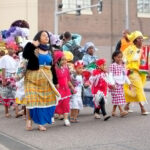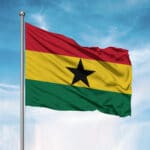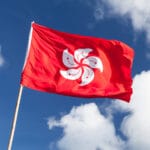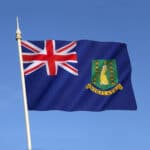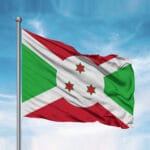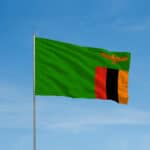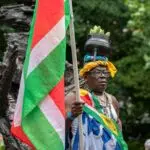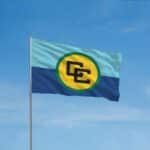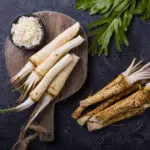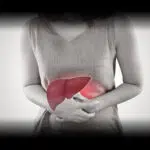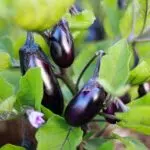Ketikoti, or Suriname Emancipation Day, is observed on July 1 every year to commemorate the country’s freedom from slavery in the Kingdom of the Netherlands and its colonies. What does ‘Ketikoti’ mean? And why do many Dutch people not know about the holiday? The answer is selective history. Unknown to many, the Netherlands was one of the last European countries to abolish slavery and the rampant trans-Atlantic slave trade. Ketikoti is one of the biggest holidays for the people of Suriname and the Antilles. It is not only a celebration of breaking chains but a platform for forgotten stories to come to life.
History of Ketikoti
The term ‘KetiKoti’ comes from the Surinamese language called Sranantongo or Sranan. It has two meanings: “break the chains” or “chains have been broken.” The chains symbolize the Surinamese struggle under Dutch slavery. The Netherlands played a significant role in enabling the transatlantic slave trade — a disturbing part of Dutch imperialism that finds no mention in history books or school curricula. It was actively involved in transporting and selling people for inhumane labor. Most Dutch people are blissfully unaware of their country’s dark legacy.Humanity prevailed in the 19th century with calls for abolition that grew louder and increasingly critical. Since protests and rebellions began threatening political stability, King William I was compelled to issue a ban on the slave trade via Dutch ships in 1814 — a promising start but true freedom was a long way away. The road to abolition in The Netherlands passed numerous stages, either too complex or ambiguous. The Dutch East Indies was one of the first territories to ban the practice in 1860. On July 1, 1863, an official decree outlawed slavery in Suriname and the Netherlands Antilles. But freedom for the people of Suriname was in name only. Owners leveraged a mandatory 10-year transition period to exploit plantation workers for minimal pay. State tactics involved brute force, fines, and imprisonment for disobedient workers. Owners would even receive compensation for losses. In 1973, after 10 crushing years of hard labor, the enslaved people in Suriname were finally free.Since then, the people of Suriname, St. Eustatius, and St. Maarten have observed Ketikoti every year on July 1. The highlight is “Bigi Spikri” or a parade where people dress in traditional costumes. “Bigi Spikri” is a Surinamese term, meaning “Big Mirror.” People can stop and admire their reflections in large shop windows or mirrors while dressed to the nines as they go around Paramaribo City. These reflections are appropriate representations of a resilient community and its liberation.
Ketikoti timeline
After mounting pressure, the Netherlands’ King William I issues a not-so-blanket ban on the transatlantic slave trade in Dutch ships.
On July 1, slavery is outlawed in Suriname and the former Netherlands Antilles but fails to effect a lasting change.
Plantation owners exploit a legally ambiguous transition period, forcing workers into hard labor with minimal pay.
A brutal 10 years after the passage of the Emancipation Law, enslaved people in Suriname finally become free.
Ketikoti FAQs
Is Suriname an impoverished country?
Suriname is a small, natural-resource rich, upper-middle income country in South America with a population of approximately 586,634.
Is Ketikoti a public holiday?
Ketikoti is not a federal or public holiday.
Is English an official language of the Netherlands?
Dutch is the official language of the country. A regional language known as Frisian is an official local language.
How to Observe Ketikoti
-
Sing, dance, and feast
Ketikoti is a joyous celebration of hard-won freedom from oppression. Dress up, show up, and party today, just like the Surinamese and Antillean people.
-
Reflect and learn
Some people choose to observe the day with quiet reflection. You can do the same.
-
Remember the dark chapters
Ketikoti is as much a remembrance as it is a party. Today, we remember the darkest chapters in human history and the suffering and courage of lives lost.
5 Interesting Facts About Suriname
-
It is centralized in one city
Almost half of Suriname’s population lives in Paramaribo.
-
They have left-hand diving
Suriname is one of two South American countries with left-hand driving.
-
The impact of colonialism on language
Suriname is the only country outside Europe where most speak Dutch.
-
It’s incredibly diverse
Suriname is home to numerous ethnic communities such as East Indians, Creole, Javanese, Maroon, Amerindian, Chinese, and White, among many others.
-
The British first attempted colonization
Although Suriname was a Dutch colony, the first European to attempt colonization was the English Captain Marshall in 1630.
Why Ketikoti is Important
-
It ensures we never forget
Ketikoki ensures the stories of enslaved people live on forever. Festivals help the world remember, even if mainstream history books conveniently exclude uncomfortable narratives.
-
Its a chance to make things right
Suriname has repeatedly asked for an apology from the Dutch government. Perhaps today serves as a reminder, and that elusive moment will finally arrive.
-
It gets us thinking
Slavery might be long-gone, but are we truly free? The 1863 events in Suriname illustrate how ‘freedom’ is a relative term.
Ketikoti dates
| Year | Date | Day |
|---|---|---|
| 2023 | July 1 | Saturday |
| 2024 | July 1 | Monday |
| 2025 | July 1 | Tuesday |
| 2026 | July 1 | Wednesday |
| 2027 | July 1 | Thursday |

